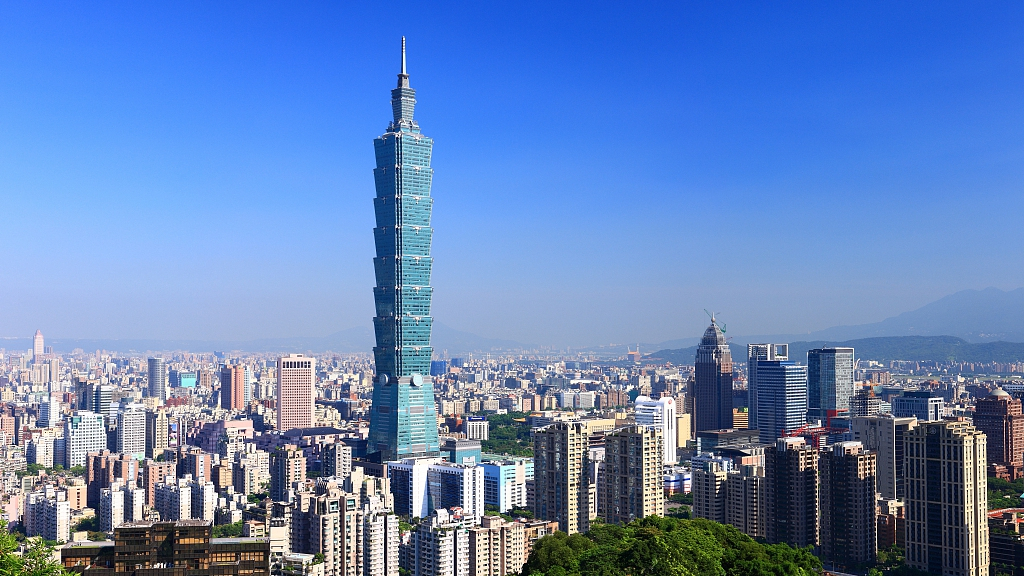DPP's trade barriers will hinder Taiwan's growth
By Wang Ziqi | China Daily | Updated: 2024-01-23 07:31

Economic collaboration plays a pivotal role in relations between the Chinese mainland and Taiwan. It contributes to the well-being of both sides and fosters integration. However, persistent restrictions imposed by the Taiwan authorities on trade, investment and people-to-people exchanges with the mainland have created challenges in the backdrop of Sino-US disputes.
The overall development of cross-Strait economic ties faces short-term fluctuations and long-term adjustments, with increasing instability and uncertainty. It is therefore crucial for both sides to prevent external interference and eliminate obstacles to steer cross-Strait economic relations back to a healthy and stable trajectory.
First, Taiwan's trade barriers hinder the entry of mainland products to the island's market, disrupting normal trade. Due to the Taiwan authorities' restrictions, cross-Strait trade in certain sectors remains indirect and one-sided. While the mainland has been further opening up its market to Taiwan goods, Taiwan imposes numerous restrictions on goods from the mainland.
For example, the island's "regulations on the importation of goods from the mainland" categorize mainland-imported goods into three types: "not permitted", "conditionally permitted" and "permitted". Shockingly, the category of "not permitted" includes a staggering 2,509 items, constituting 20.03 percent of all goods in the World Customs Organization's "Harmonized Commodity Description and Coding System". In stark contrast, Taiwan restricts the import of only 98 items from other economies.
This blatant violation of the World Trade Organization's principles, such as non-discrimination and the general elimination of quantitative restrictions, is particularly concerning. The Taiwan authorities have restricted the entry of an increasing number of products from the mainland — of the 2,509 items Taiwan has imposed restrictions on since its accession to the WTO, 1,423 items are from the mainland. This has harmed normal cross-Strait trade, impeding cooperation between cross-Strait industrial and supply chains.
Second, the Taiwan authorities, driven by political considerations, continue to tightly control and restrict two-way investments, hampering collaboration in high-tech industries. Despite opening direct investments from Taiwan to the mainland in 2002 and allowing mainland investment on the island in 2009, the Taiwan authorities are still skeptically about the mainland market and enterprises. Their concerns revolve around technology leakage, potential impact on local employment, and the formation of "pro-mainland" interest groups.
In the backdrop of the intensifying Sino-US rivalry, the Taiwan authorities have taken a distinctly pro-US and anti-mainland stance, leading to escalation in political interference that could derail cross-Strait investments.
The Taiwan authorities have repeatedly intervened in normal cross-Strait industrial cooperation projects, citing "threats to Taiwan's security". They have changed laws to restrict investments from the mainland, strengthen the scrutiny of investments and impose fines of up to NT$25 million ($796,192) for "unauthorized investments" by mainland entities.
The island's authorities have also imposed strict controls on the development of Taiwan's high-tech industries on the mainland, by making it mandatory for them to get prior approval for direct or third-party technical cooperation between Taiwan entities and their mainland counterparts.
Moreover, Taiwan's high-tech enterprises, such as semiconductor and panel manufacturers, selling shares or conducting transactions with mainland enterprises have to get prior approval instead of reporting after sales for any transaction with mainland companies. And a new regulation on "economic espionage" imposes severe penalties, including up to 12 years' imprisonment and a fine of up to NT$1 billion, for "leaking" core critical technologies to the mainland.
Washington and Taiwan, under the framework of the "economic prosperity partnership dialogue", have formed a working group to review investment, with the aim of controlling cross-Strait high-tech industry cooperation. Additionally, the Taiwan authorities have implemented the "three major programs for investing in Taiwan" and are promoting the "new southbound policy" so as to attract Taiwan businesses operating on the mainland to relocate their production units to the island or third-party destinations in Southeast Asia.
And third, the Democratic Progressive Party took office in May 2016, and in 2019, disregarding public opinion, it created the "democratic protection network" to restrict cross-Strait interactions. The "democratic protection network" consists of the "five amendments to the national security laws" and the "anti-infiltration act", and expands the scope of applicability of the regulations on "mainland spies" while restricting retired security department personnel from visiting the mainland, raising the threshold for signing political agreements between the two sides and extending the exit control period for personnel involved in sensitive matters.
The intent of the Taiwan authorities is to discourage and disrupt cross-Strait exchanges, and exacerbate tensions between the two sides of the Strait. Additionally, citing COVID-19 prevention as a pretext, the Taiwan authorities limited cross-Strait personnel exchanges, which are yet to return to the pre-pandemic level.
The normalization of economic and trade relations across the Strait is a shared aspiration, and in the common interest, of both sides of the Strait. However, since 2016, the Taiwan authorities have not taken concrete measures to lift the discriminatory trade and investment restrictions. Instead, the Taiwan authorities have erected taller barriers, obstructing cross-Strait economic cooperation and people-to-people exchanges at the cost of constraining Taiwan's economic development space and hurting the interests of Taiwan residents.
In the recent Taiwan leadership election, the DPP's pro-independence candidate Lai Ching-te was elected the island's leader despite receiving only 40 percent of the votes, indicating that a majority of the island's residents want cross-Strait peace. The fact that Lai has refused to accept the 1992 Consensus that there is only one China will further weaken the political mutual trust across the Strait, and make Taiwan's economic recovery even more difficult.
Given the mutual benefits of enhancing cross-Strait exchanges and cooperation, the Taiwan authorities should lift the trade restrictions instead of engaging in political manipulations and maligning the mainland. We hope the two sides of the Strait will work together to return cross-Strait relations back to the path of peaceful development.
The author is an associate researcher at the Institute of Taiwan Studies, Chinese Academy of Social Sciences.
The opinions expressed here are those of the writer and do not necessarily represent the views of China Daily and China Daily website.
If you have a specific expertise, or would like to share your thought about our stories, then send us your writings at opinion@chinadaily.com.cn, and comment@chinadaily.com.cn.
























